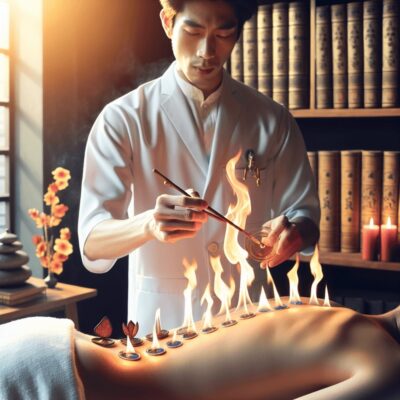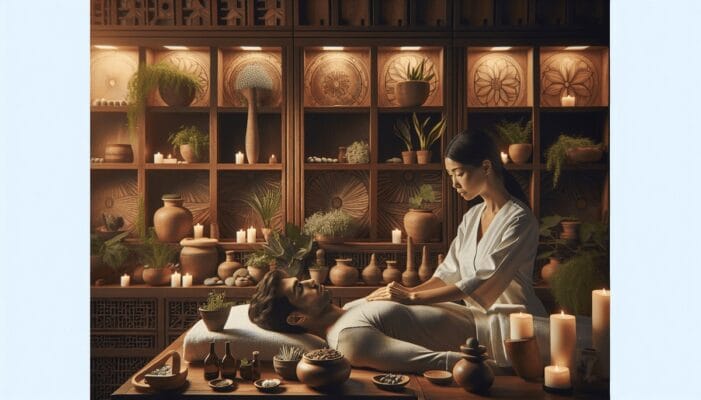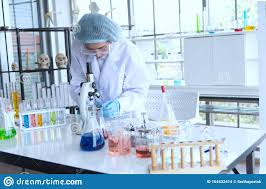Services
Certificate Course in Ayurveda Massage
Certificate Course in Ayurveda Massage at Disha Arogya Dham
Ayurveda is an ancient practice that combines age-old wisdom with modern wellness. Originating from India over 5,000 years ago, this healing system believes that true health is achieved when there is harmony between the body, mind, and spirit. Its holistic approach has gained worldwide recognition for its effectiveness in promoting natural healing and maintaining optimal health.
The Certificate Course in Ayurveda Massage at Disha Arogya Dham opens doors to this transformative world of healing. This comprehensive program equips you with:
- Traditional massage techniques passed down through generations
- Deep understanding of body constitution and energy patterns
- Practical skills for promoting natural healing
- Knowledge of authentic Ayurvedic principles
At Disha Arogya Dham, you’ll discover the art and science of Ayurvedic massage therapy through hands-on training and expert guidance. This certification course isn’t just about learning massage techniques – it’s about embracing a profound healing tradition that can transform both your career and personal wellness journey.
Ready to unlock the healing power of Ayurveda? Your path to becoming a certified Ayurvedic massage practitioner starts here.
Understanding Ayurveda Massage
Ayurveda massage is a sacred healing art that goes beyond traditional bodywork methods. This ancient therapy technique brings together the mind, body, and spirit through specific movements and herbal oils, creating a deep healing experience that addresses both physical and energetic imbalances.
The Ancient Roots of Ayurvedic Massage
Ayurvedic massage has its origins in the Indian subcontinent over 5,000 years ago as an essential part of traditional medicine. Ancient texts such as the Charaka Samhita and Sushruta Samhita contain detailed descriptions of massage techniques that have been passed down through generations of practitioners.

Core Elements of Ayurvedic Massage
The practice of Ayurvedic massage is built upon several key elements:
- Personalized Treatment: Each massage session adapts to your unique constitution
- Herbal-Infused Oils: Specially prepared oils enhance therapeutic benefits
- Rhythmic Movements: Specific stroke patterns align with energy pathways
- Energy Points: Focus on marma points to release blocked energy
Understanding the Three Doshas
The foundation of Ayurvedic massage lies in balancing the three doshas:
- Vata (Air and Space)
- Controls movement and flow
- Responds to gentle, warming techniques
- Pitta (Fire and Water)
- Governs metabolism and transformation
- Benefits from cooling, moderate pressure
- Kapha (Earth and Water)
- Maintains structure and lubrication
- Requires firm, stimulating movements
Your unique dosha combination determines the specific massage techniques, oils, and pressure points used during treatment. This personalized approach ensures maximum therapeutic benefit and helps restore your natural state of balance.
The practice integrates precise hand movements with sacred geometric patterns, working along the body’s energy channels to remove blockages and promote healing. These techniques stimulate the lymphatic system, enhance circulation, and activate the body’s natural healing mechanisms. In fact, studies suggest that such therapies can significantly improve overall well-being and health outcomes (source).
Exploring Different Ayurvedic Massage Techniques
Laghu Abhyanga stands as a cornerstone of Ayurvedic self-care practices. This 15-20 minute ritual uses warm herbal oils combined with gentle, rhythmic strokes to create profound healing effects:
- Circulation Enhancement: Light, upward strokes stimulate blood flow
- Muscle Relaxation: Targeted pressure dissolves tension points
- Nervous System Balance: Rhythmic movements activate the parasympathetic response
- Skin Rejuvenation: Herbal oils nourish and revitalize skin cells
- Natural Detoxification: Massage strokes support lymphatic drainage
The traditional practice of Abhyanga delivers a comprehensive full-body healing experience. This hour-long treatment incorporates:
- Specialized oil selection based on individual constitution
- Strategic pressure points activation
- Synchronized strokes by multiple therapists
- Deep tissue manipulation
- Energy center balancing
Shirodhara, a distinctive Ayurvedic technique, focuses on mental wellness through continuous oil flow on the forehead. This practice:
- Reduces anxiety and stress
- Improves sleep quality
- Enhances mental clarity
- Balances hormones
- Relieves headaches and migraines
Traditional Ayurvedic massage differs from modern massage therapies in several key aspects:
- Oil Selection
- Ayurveda: Customized herbal oils based on individual constitution
- Modern: Generic oils or lotions
- Treatment Approach
- Ayurveda: Holistic healing targeting physical, mental, and spiritual well-being
- Modern: Focus on physical symptoms and muscle tension
- Duration and Frequency
- Ayurveda: Regular treatments as preventive care
- Modern: Typically sought for specific issues or relaxation
- Therapeutic Goals
- Ayurveda: Balance of life energies (doshas)
- Modern: Muscle recovery and stress relief
These ancient techniques form the foundation of DAD Ayurveda’s massage certification program, offering students a deep understanding of authentic healing practices. In addition to these hands-on techniques, Ayush Dhara, an organization dedicated to promoting Ayurvedic practices, also plays a significant role in preserving and spreading knowledge about these time-honored methods.

The Comprehensive Certificate Course at Disha Arogya Dham
The Certificate Course in Ayurveda Massage at Disha Arogya Dham spans across 12 intensive weeks, designed to transform you into a skilled practitioner. The curriculum integrates ancient wisdom with modern teaching methodologies, creating a dynamic learning experience.
Course Structure
Foundation Module (4 weeks)
- Basic principles of Ayurveda
- Anatomy and physiology
- Understanding dosha assessment
- Introduction to massage oils and herbs
Practical Training (6 weeks)
- Hands-on massage techniques
- Client consultation methods
- Treatment protocol development
- Practice sessions with real clients
Advanced Integration (2 weeks)
- Business setup guidance
- Professional ethics
- Documentation practices
- Case study analysis
The training program runs five days a week, with morning sessions dedicated to theoretical knowledge and afternoons focused on practical application. You’ll participate in daily workshops where experienced practitioners demonstrate advanced techniques and guide you through proper execution.
Learning Objectives
- Master essential Ayurvedic massage techniques
- Develop skills in client assessment and treatment planning
- Learn to create customized massage protocols
- Understand proper use of Ayurvedic oils and herbs
- Build confidence in professional practice
The course emphasizes hands-on experience through supervised practice sessions. You’ll work with fellow students and real clients under expert guidance, receiving immediate feedback to refine your techniques. Interactive lectures incorporate multimedia presentations, traditional texts, and modern research to provide comprehensive theoretical knowledge.
Small class sizes ensure personalized attention, with a maximum of 12 students per batch. The institute provides all necessary learning materials, including oils, herbs, and practice equipment. Regular assessments help track your progress and identify areas for improvement.
Benefits Beyond Certification: Enriching Your Life Through Ayurveda Massage Education
A Certificate in Ayurveda Massage opens doors to diverse professional opportunities in the growing wellness industry. You can establish your career path in multiple directions:
- Spa and Wellness Centers: Work with luxury resorts, day spas, or wellness retreats
- Private Practice: Start your own Ayurvedic massage therapy business
- Health Clinics: Join integrative medicine centers or holistic health practices
- Corporate Wellness: Provide services to companies prioritizing employee well-being
The certification brings profound personal transformation through deep understanding of Ayurvedic principles. You develop:
- Self-Awareness: Learn to identify your own body constitution and energy patterns
- Mindfulness: Practice presence and intentionality in daily activities
- Healing Touch: Master therapeutic techniques that benefit both practitioner and client
- Lifestyle Wisdom: Integrate ancient Ayurvedic practices into modern living
Your journey with Ayurvedic massage education creates ripple effects beyond professional success. The knowledge gained enhances your ability to maintain personal health balance, manage stress, and cultivate deeper connections with others. This holistic approach to well-being transforms you into both a skilled practitioner and an embodiment of Ayurvedic principles.
The skills you acquire serve as powerful tools for promoting health and wellness in your community. Each client interaction becomes an opportunity to share the transformative benefits of Ayurvedic massage while continuing your own growth journey.
Holistic Health Care Approach: Nurturing Clients with Personalized Consultations and Treatment Protocols
Ayurvedic massage therapy thrives on the principle of individualized care. Each client presents a unique combination of doshas – their physical constitution, emotional state, and lifestyle factors that influence their well-being. A skilled practitioner recognizes these distinct patterns and crafts personalized treatment protocols that address specific health concerns.
The Importance of Consultation in Ayurvedic Massage Therapy
The consultation process serves as the cornerstone of effective Ayurvedic massage therapy. During these sessions, practitioners:
- Assess the client’s prakriti (natural constitution)
- Identify current imbalances
- Evaluate lifestyle factors
- Document health history
- Understand personal wellness goals
This detailed assessment enables practitioners to select appropriate:
- Massage techniques
- Herbal oils
- Pressure points
- Session duration
- Treatment frequency
Building Trust Through Personalized Interactions
The relationship between client and practitioner grows stronger through these personalized interactions. Regular consultations create a safe space for clients to share their concerns, track progress, and receive guidance on complementary self-care practices. This trust-based relationship enhances the effectiveness of treatments as clients feel heard, understood, and actively involved in their healing journey.
Tailoring Treatments to Individual Needs
A personalized treatment protocol might combine different Ayurvedic massage techniques based on the client’s specific needs. For example, a client experiencing stress and anxiety might benefit from gentle Shirodhara combined with targeted marma point therapy, while someone seeking relief from muscle tension might require deeper tissue work through Abhyanga.
To ensure optimal results, it’s crucial for practitioners to have a deep understanding of various Ayurvedic principles and techniques. This knowledge allows them to provide comprehensive care that addresses not just physical symptoms but also emotional and psychological aspects of health. Such an approach is at the heart of Holistic Health Care, which emphasizes the need for personalized consultations and treatment protocols tailored to individual client needs.
Beyond Ayurveda Massage: Expanding Your Knowledge with Comprehensive Training Programs at Disha Arogya Dham
Disha Arogya Dham’s educational offerings extend far beyond massage techniques. The institute provides a rich tapestry of complementary courses designed to create well-rounded Ayurvedic practitioners:
- Understanding food energetics
- Seasonal dietary protocols
- Therapeutic meal planning
- Dietary recommendations for different doshas
- Growing medicinal plants
- Harvesting techniques
- Creating herbal preparations
- Storage and preservation methods
- Herbal Beauty Care
- Natural cosmetic formulations
- Skin type analysis
- Traditional beauty rituals
- Therapeutic facial treatments
- Natural healing methods
- Detoxification protocols
- Lifestyle modifications
- Preventive health practices
- Asana practice
- Pranayama techniques
- Meditation methods
- Mind-body connection
These courses work synergistically with the Certificate Course in Ayurveda Massage, creating a comprehensive understanding of holistic wellness. You’ll learn to combine various therapeutic approaches – from massage techniques to dietary recommendations, herbal remedies to yoga practices – providing your clients with integrated healing solutions.
The knowledge gained from these additional programs enhances your ability to address health concerns from multiple angles, strengthening your practice and expanding your professional opportunities in the wellness industry.
Discover the Healing Power of Ayurveda Through Education and Practice!
Your journey into Ayurvedic healing starts with a single step. The Certificate Course in Ayurveda Massage at Disha Arogya Dham opens doors to ancient wisdom and transformative healing practices that can reshape your understanding of health and wellness.
This transformative experience goes beyond learning massage techniques – it’s about discovering the healer within you. You’ll gain:
- Deep understanding of your body’s natural healing abilities
- Skills to help others achieve optimal wellness
- Ancient wisdom adapted for modern healing practices
- Practical knowledge to start your healing journey
The path of embracing Ayurveda brings profound changes to both practitioner and client. Each massage technique learned, each principle understood, adds another layer to your healing capabilities.
Ready to unlock your potential as an Ayurvedic healer? Take the first step today. Join our certificate program and become part of an ancient healing tradition that continues to transform lives in the modern world.
“The power to heal lies within – Ayurveda simply shows us the way.”
FAQs (Frequently Asked Questions)
What is the significance of Ayurveda in promoting holistic health?
Ayurveda is a traditional system of medicine that emphasizes the balance of mind, body, and spirit. It promotes holistic health by addressing the root causes of ailments rather than just symptoms, thereby fostering overall well-being and harmony.
What can I expect from the Certificate Course in Ayurveda Massage at Disha Arogya Dham?
The Certificate Course in Ayurveda Massage at Disha Arogya Dham offers a comprehensive curriculum that includes both theoretical knowledge and practical training. Participants will engage in hands-on workshops, practice sessions, and interactive lectures designed to equip them with essential skills for personal and professional growth.
What are some common Ayurvedic massage techniques covered in the course?
The course explores various Ayurvedic massage techniques, including Laghu Abhyanga, which is known for its rejuvenating effects, Abhyanga (full-body oil massage), and Shirodhara (pouring warm oil on the forehead). Each technique offers unique benefits aimed at enhancing physical and mental wellness.
How does personalized consultation enhance the effectiveness of Ayurveda Massage?
Personalized consultations are crucial in Ayurveda Massage as they allow practitioners to understand individual client needs deeply. This tailored approach ensures that treatments address specific health concerns effectively, fostering a strong client-practitioner relationship based on trust and understanding.
What career opportunities are available after completing this certification?
Upon completing the Certificate Course in Ayurveda Massage, graduates can pursue diverse career paths within the spa industry, wellness centers, or even establish their own private practice. The education provided also supports personal development through a profound understanding of self-care practices rooted in Ayurvedic philosophy.
Are there additional courses offered at Disha Arogya Dham that complement Ayurveda Massage training?
Yes, Disha Arogya Dham offers additional courses that complement the study of Ayurveda Massage. These include programs on Ayurveda Diet and Nutrition or Herb Cultivation, allowing participants to integrate diverse Ayurvedic practices into a holistic approach to health care.
Discover more from DAD Ayurveda
Subscribe to get the latest posts sent to your email.








